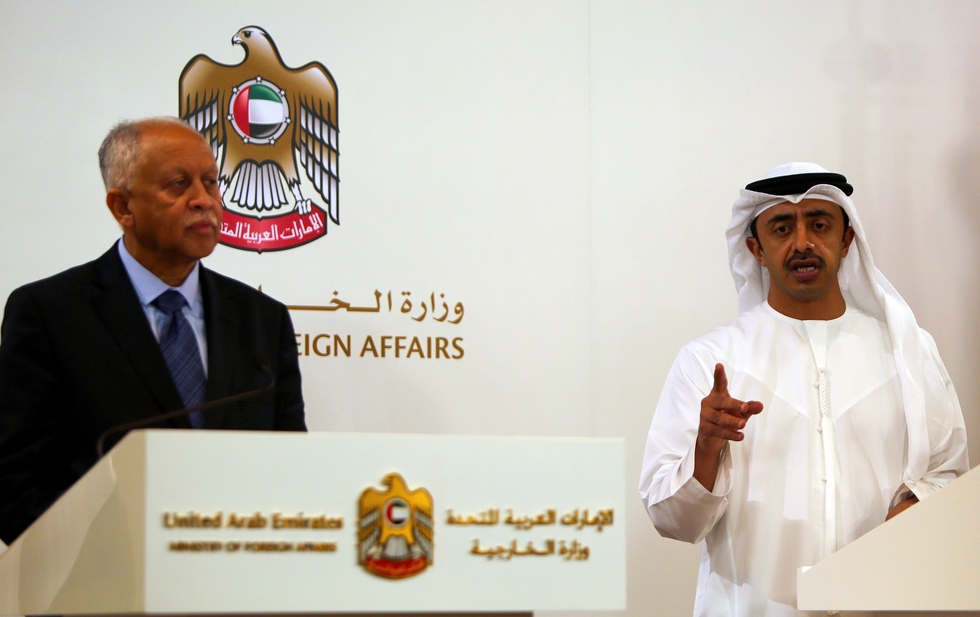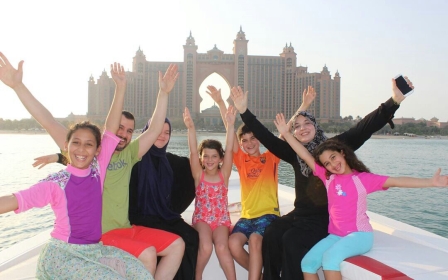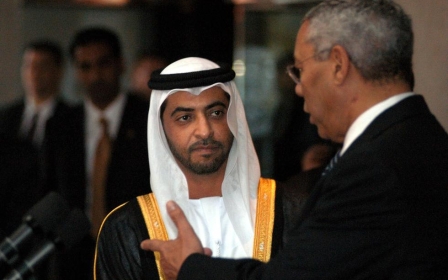Emirati families shocked as UAE sends conscripts into Yemen battle

The United Arab Emirates is sending conscripts to Yemen as part of military operations to support the Saudi-led coalition in reinstating the exiled government of President Abd Rabbuh Mansour Hadi.
Sources close to families who have had their sons sent to Yemen told Middle East Eye that they are shocked young men doing their military service would be sent to a war zone, as they have no combat experience.
The UAE is estimated to have deployed at least 1,500 troops to Yemen, although no official numbers have been released. The troops are said to be part of a 3,000 strong Saudi-UAE force, which is rumoured to also include Egyptian soldiers, and is equipped with French battle tanks, Russian fighting vehicles and American troop carriers.
Saudi Arabia launched a coalition in March to launch airstrikes against Houthi militiamen, who had seized large swathes of Yemen and forced President Hadi into exile in Riyadh. The conflict has plunged the Arab world’s poorest nation into a dire humanitarian crisis, with 80 percent of the country’s 25 million people requiring aid assistance, according to the United Nations.
Gulf Arab states view the Houthis as being backed by Iran and the conflict in Yemen is often described as being a proxy war for regional rivalries. The Houthis have admitted their alliance with Iran but denied acting as their proxy in Yemen – the Saada-based group is rooted in local grievances and have long complained of political and economic marginalisation.
A private secretary to President Hadi recently told a Saudi newspaper that the Emirati soldiers deployed in Yemen are in the south-west city of Aden and will protect the port’s airport as well as provide support to the Yemeni army in operating “sensitive devices” that they are not familiar with using.
Two Emirati sources who are independent of each other told Middle East Eye that conscripts are being deployed to Yemen as part of the UAE force.
“To us this is a shock,” said one source, who asked to remain anonymous due to the sensitivity of the issue.
“These young men are forced to do military service and should not be taken to hot conflict areas. They are civilians who are supposed to go back to their lives and work after finishing their service."
The UAE introduced mandatory military service in June last year, which the government said was designed to “instil values of loyalty and sacrifice in the hearts of the citizens”.
Men between 18 and 30 years of age, who have completed high school, serve nine months and those without a high school diploma serve two years. Military service for women is optional.
The Emirati sources said “many” conscripts have been sent to Yemen but neither knew the exact number of conscripts deployed. They added that a number of families have recently been told that their sons will be sent to Yemen while completing their military service.
A military source in Aden told Middle East Eye on condition of anonymity that despite claims of conscripts being sent to Yemen, the Emirati troops in Aden have proved to be "experienced, educated in the West and been very kind".
The UAE has suffered multiple casualties since deploying troops to Yemen. Although there is no official death toll, Yemen’s exiled Vice President Khalid Bahah said on 3 August that a “number” of Emiratis had “sacrificed their lives while supporting legitimacy in Yemen”.
On 8 August the official WAM news agency announced that three Emirati soldiers had been killed after their armoured vehicle was hit by a landmine. Two others were killed in July according to state owned media.
The latest Emirati casualties – who were not conscripts – have been described as “martyrs” by the country’s leaders.
“They have written glory and heroism with their blood for the sake of peace and backing trodden people [in Yemen],” said Sheikh Mohammed bin Rashid al-Maktoum, ruler of Dubai and vice president of the UAE, while visiting the soldiers’ families to offer his condolences.
Sheikh Mohammed said the country’s leaders would “spare no effort for the welfare of their families” and Saudi Arabia’s Deputy Crown Prince Mohammed bin Salman has pledged to treat the three slain Emiratis as “Saudi martyrs financially and morally”.
The treatment of the three men as martyrs was criticised as a distraction by the Emirati source close to families who have had their loved ones sent to fight in Yemen.
“Whenever an Emirati dies in war they [the authorities] make the announcement quickly, call him Shaheed (martyr), and top leaders start tweeting about them,” they said. “The leaders then visit the victim’s family and promise them money.”
“They [the authorities] do all that to have people forget the basic question: Why are these guys taken there? Their country is the UAE but they are not defending here. This is their way to divert people’s attention away from this important question.”
Official media said the soldiers’ families were “proud” to have been visited by the country’s leaders, adding that the families had said they “would remain faithful to the UAE and its wise leadership”.
But Emiratis whose sons are being sent to fight in Yemen as conscripts are allegedly taking a different position on the UAE’s military activities.
“Families are angry their sons are being forced into war,” said an Emirati source, again asking to remain anonymous, fearing reprisals from authorities. “But they can’t do anything about it – if they speak out then they will be sent to prison.”
“People will not speak about this in public because it is very dangerous to do so, but in private those affected are not happy.”
New MEE newsletter: Jerusalem Dispatch
Sign up to get the latest insights and analysis on Israel-Palestine, alongside Turkey Unpacked and other MEE newsletters
Middle East Eye delivers independent and unrivalled coverage and analysis of the Middle East, North Africa and beyond. To learn more about republishing this content and the associated fees, please fill out this form. More about MEE can be found here.




